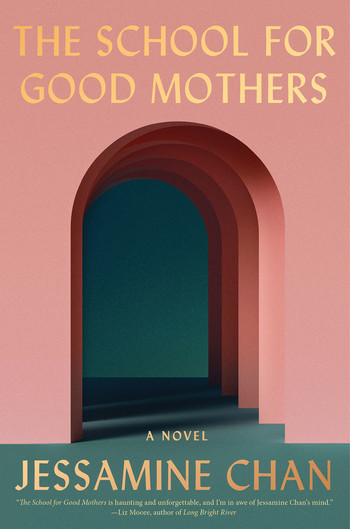In the fifteen months since I became a mother, not a day has gone by when I haven’t wondered if I’m doing it wrong. What if someone has been watching, docking points for the formula I fed my son, for the times I let him cry himself to sleep, for the exasperation that crept into my voice when he smeared peanut butter in his hair, again? If I were to be graded on this — the most important task of my life — would I pass?
In her best-selling debut novel, a dystopian vision of modern motherhood, Jessamine Chan ’12SOA takes these all-too-common fears and spins them into the stuff of absolute nightmares. The result is a satire so perfectly executed, so incisive and uncomfortable, that it ought to come with a trigger warning.
At the beginning of the book, newly single mother Frida Liu has what she calls a “very bad day.” Stressed and sleep-deprived, she straps her eighteen-month-old daughter, Harriet, into a bouncy chair and goes to the office, leaving her alone for what is supposed to be ten minutes but turns into two hours. When she returns, Harriet is in the custody of Frida’s ex-husband and the girlfriend he left her for.
Frida is given a choice: relinquish all rights to Harriet or spend a grueling year proving herself at a reform school for “bad mothers.” She chooses the school. There Frida and her fellow inmates (many in for infractions as minor as “coddling” or letting a child play alone in the backyard) must parent AI-enhanced, camera-equipped robot dolls through feeding, playdates, and potty training while the government watches and judges. Lest the mothers slip into a genuine connection with the dolls and forget for a moment where they are, they are forced to repeat two humiliating mantras: “I am a bad mother, but I’m learning to be good” and, more sinister, “I am a narcissist. I am a danger to my child.”
Frida’s mistake was serious, but she’s also a deeply sympathetic character. Her love for Harriet is desperate, and her hope for a reunion heartbreaking. But it’s clear that in Chan’s surveillance hellscape, there is no real path to redemption, no way for a flawed mother to win. Notably, there is a father’s section of the school, and their path back to custody seems clearer; their mistakes are more easily forgiven, and even minor efforts they make with their dolls are acknowledged and praised.
The dolls are meant to “gauge the mothers’ love,” the instructors tell Frida. But it’s not just their behavior under scrutiny, it’s their thoughts. “Their blinking patterns and expressions will be monitored to detect stress, fear, ingratitude, deception, boredom, ambivalence, and a host of other feelings.” The instructors are looking for perfection. But of course, no human is capable of it, and Chan captures brilliantly the mommy-shaming culture that — even in the real world, with no robot dolls in sight — makes perfection seem not just possible but expected.



